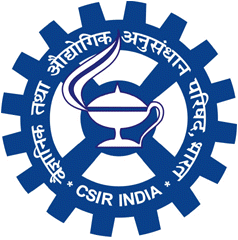Treatments Focus
Decreased Fertility

You’ve been actively trying to conceive for at least a year, but you haven’t had much success despite your best efforts. You’re not alone.
Infertility, or declining fertility, is a major health problem in today’s society. The gravity of the situation is that around 8 to 12 percent of couples worldwide have fertility issues. In India alone, it is estimated that 8 to 14 percent of women aged 15 to 50years have difficulty conceiving or staying pregnant, with the majority residing in urban areas.
While several factors are to be blamed for this problem in females, which are complex and often hard to diagnose, proper medical assessments, including targeted genetic tests and timely treatment, are mandatory to improve your chances of conception.
Symptoms of decreased fertility
Apart from the primary symptoms of difficulty in conceiving, the red flags of decreased fertility can significantly vary from person to person.
Hence, based on the underlying causes of infertility, you may also notice these additional symptoms:
Irregular Or Missed Periods
Heavy periods
Severe menstrual cramps
Unpredictable vaginal bleeding
Chronic pelvic pain
Decreased sex drive
Unexplained weight gain
Facial hair growth
Thinning hair
Sudden severe acne
Unusual discharge
Causes of decreased fertility
Several factors can contribute to female infertility. While there may be multiple causes in some cases, there may be none in others. Some of the most common causes that can put you at greater risk of infertility are:
- Age
- Endometriosis
- Blocked or damaged fallopian tubes (due to pelvic inflammatory disease or surgery)
- Cervical factors (abnormal mucus or anti-sperm antibodies)
- Uterine abnormalities (such as fibroid, polyps and myomas)
- Ovulation disorders (PCOS, primary ovarian insufficiency (POI), and excess prolactin)
- Implantation failure
- Obesity
- Hormonal imbalance
- Genetic factors
- Effects of birth control pills and other medications(chemotherapy)
- Poor diet lacking in nutrients
- Excessive stress
- Autoimmune disorders (thyroid disorders, lupus or rheumatoid arthritis)
Diagnosis and Treatment
To determine the root cause of your fertility problems, your doctor may perform a physical examination and ask questions about your medical history and lifestyle. Then depending on your specific circumstances, they may run various tests, including:
- Blood and urine tests to check for general health and hormone levels,
- Ovarian reserve tests to examine the egg quality and quantity,
- Imaging tests to look for structural abnormalities in your reproductive tract
Typically, infertility treatment is decided based on the results of your medical evaluation, which may include medications or surgery, delivering the best results if you start off early.
FAQ's :
In about 10% of women, genetic abnormalities caused by inherited chromosome change or a single-gene variant passed from parent to child may lead to infertility. However, many other factors such as environment and lifestyle have a much greater effect.
Yes.
When both partners have genetic defects, a baby does not develop at the embryonic or cell level, which could result in infertility.
Contrary to male infertility, female infertility has a complex genetic basis. While it is not clear which genes cause infertility among Indian women, published evidence suggests that alteration in BMP15, PGRMC1, FMR1 locus on the X chromosome, and 80 other genes have a negative impact on the reproductive function in some other populations.
Many genetic tests are available to determine whether you carry a genetic change that could be impacting your fertility. For example, your doctor may ask for karyotyping, preconception genetic testing or DNA sequencing of specific genes as part of the diagnosis.
Genetic conditions that may cause infertility in women include Turner’s syndrome, Fragile X-associated Primary Ovarian Insufficiency (FXPOI), Congenital Adrenal Hyperplasia (CAH), and other chromosomal disorders.
References:
- Female Infertility Guide: Causes, Symptoms and Treatment Options. Retrieved May 10, 2022, from https://www.drugs.com/health-guide/female-infertility.html#symptoms
- Infertility: Causes, diagnosis, risks, and treatments. (2018, January 4). https://www.medicalnewstoday.com/articles/165748
- Top Causes of Infertility in Women. (2017, November 29). HealthyWomen. https://www.healthywomen.org/content/article/top-causes-infertility-women
- Naina Purkayastha, & Sharma, H. (2021). Prevalence and potential determinants of primary infertility in India: Evidence from Indian demographic health survey. Clinical Epidemiology and Global Health, 9, 162–170. https://doi.org/10.1016/j.cegh.2020.08.008
- Katole, A., & Saoji, A. V. (2019). Prevalence of Primary Infertility and its Associated Risk Factors in Urban Population of Central India: A Community-Based Cross-Sectional Study. Indian Journal of Community Medicine : Official Publication of Indian Association of Preventive & Social Medicine, 44(4), 337–341. https://doi.org/10.4103/ijcm.IJCM_7_19
- Gajbhiye, R., Fung, J. N., & Montgomery, G. W. (2018). Complex genetics of female fertility. Npj Genomic Medicine, 3(1), 1–10. https://doi.org/10.1038/s41525-018-0068-1
- Cariati, F., D’Argenio, V., & Tomaiuolo, R. (2019). The evolving role of genetic tests in reproductive medicine. Journal of Translational Medicine, 17(1), 267. https://doi.org/10.1186/s12967-019-2019-8
- Guidelines for the appropriate use of genetic tests in infertile couples | European Journal of Human Genetics. (n.d.). Retrieved May 11, 2022, from https://www.nature.com/articles/5200805
- Patel, B., Parets, S., Akana, M., Kellogg, G., Jansen, M., Chang, C., Cai, Y., Fox, R., Niknazar, M., Shraga, R., Hunter, C., Pollock, A., Wisotzkey, R., Jaremko, M., Bisignano, A., & Puig, O. (2018). Comprehensive genetic testing for female and male infertility using next-generation sequencing. Journal of Assisted Reproduction and Genetics, 35(8), 1489. https://doi.org/10.1007/s10815-018-1204-7
Related Articles
Book an Appointment to understand how GenepoweRx can help you in treating
Decreased Fertility
Meet The Doctors
Dr Kalyan Uppaluri
Dr Hima Challa
Your genetics … Your Test ... Your Health Success
It’s always the word of mouth that’s the best advice. Here are some of our…


Our Partners






Professional Partnerships
Government Association

